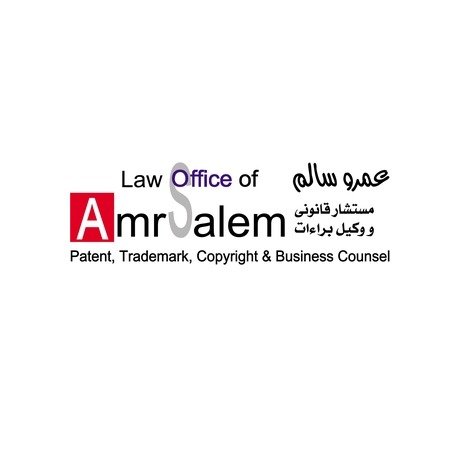Best Oil, Gas & Energy Lawyers in Egypt
Share your needs with us, get contacted by law firms.
Free. Takes 2 min.
Or refine your search by selecting a city:
List of the best lawyers in Egypt
About Oil, Gas & Energy Law in Egypt
Egypt is one of the largest producers of oil and natural gas in Africa, playing a crucial role in the region's energy market. The country has a diversified energy landscape that includes natural gas, crude oil, and an emerging renewable energy sector. Recent years have seen significant discoveries in the Mediterranean, highlighting Egypt’s potential to be a regional energy hub. Oil, Gas & Energy law in Egypt facilitates the exploration, extraction, production, and distribution of these resources while ensuring compliance with national and international regulations.
Why You May Need a Lawyer
Engaging with Oil, Gas & Energy operations in Egypt can be complex and involves navigating a range of legal, regulatory, and commercial issues. You may need a lawyer in situations such as:
- Negotiating exploration and production agreements.
- Ensuring compliance with environmental regulations.
- Handling disputes related to energy consumption or delivery.
- Advising on mergers, acquisitions, or joint ventures in the energy sector.
- Securing permits and licenses for energy projects.
Local Laws Overview
The legal framework governing oil, gas, and energy in Egypt is complex and influenced by both local legislation and international agreements. Key aspects include:
- The Hydrocarbons Law: Regulates the exploration and production of oil and gas resources.
- The Electricity Law: Oversees electricity generation, distribution, and tariffs.
- Environmental Laws: Establish standards for environmental protection and sustainability in energy projects.
- Investment Laws: Provide favorable conditions and incentives for foreign investors in the energy sector.
Frequently Asked Questions
1. What are the main regulatory bodies in Egypt's energy sector?
The main regulatory bodies include the Ministry of Petroleum, Egyptian General Petroleum Corporation (EGPC), and the Egyptian Electric Utility and Consumer Protection Regulatory Agency.
2. Are there investment opportunities for foreign companies in Egypt's energy sector?
Yes, Egypt welcomes foreign investment in its energy sector, offering various incentives and a clear legal framework for exploration and production activities.
3. What is the role of renewable energy in Egypt?
Renewable energy is a growing sector in Egypt, with the government aiming to increase its share in the energy mix. This includes projects in wind, solar, and bioenergy.
4. How does Egypt address environmental concerns in the energy sector?
Egypt has environmental protection laws that require energy projects to conduct environmental impact assessments and adhere to sustainability standards.
5. What are production sharing agreements?
Production Sharing Agreements (PSAs) are contracts between the government and foreign oil companies that define the sharing of profits from oil and gas production.
6. Can foreign companies own energy assets in Egypt?
Foreign companies can participate in the energy sector through joint ventures and partnerships, although direct ownership of strategic assets may be restricted.
7. How are energy disputes resolved in Egypt?
Energy disputes in Egypt are typically resolved through negotiation, arbitration, or legal proceedings, with arbitration being a favored method due to its efficiency.
8. What taxes apply to the oil and gas sector in Egypt?
The oil and gas sector in Egypt is subject to a range of taxes and fees, including royalties, corporate tax, and customs duties, governed by the fiscal terms of specific agreements.
9. How does Egypt ensure energy security?
Egypt ensures energy security through a mix of domestic production, strategic reserves, and diversification into renewable energy sources to reduce dependence on imports.
10. What role does Egypt play in regional energy cooperation?
Egypt plays a pivotal role in regional energy cooperation, facilitated by its strategic location, infrastructure, and participation in multinational energy projects like the East Mediterranean Gas Forum.
Additional Resources
For further information and guidance, you may consider reaching out to the following resources:
- The Egyptian Ministry of Petroleum and Mineral Resources
- Egyptian General Petroleum Corporation (EGPC)
- The Egyptian Electric Utility and Consumer Protection Regulatory Agency
- Energy-focused legal consultancies and law firms with expertise in the Egyptian market
Next Steps
If you require legal assistance in the Oil, Gas & Energy sector in Egypt, consider these steps:
- Research and contact law firms with a strong track record in the energy sector.
- Schedule consultations to discuss your specific needs and potential legal strategies.
- Ensure that the lawyer you choose is experienced in navigating Egypt's regulatory environment and understands international energy law standards.
- Prepare all relevant documentation and information before engaging with a legal professional to maximize the effectiveness of your consultation.
By taking these steps, you can ensure that you receive informed and effective legal support for your ventures in the Egyptian energy sector.
Lawzana helps you find the best lawyers and law firms in Egypt through a curated and pre-screened list of qualified legal professionals. Our platform offers rankings and detailed profiles of attorneys and law firms, allowing you to compare based on practice areas, including Oil, Gas & Energy, experience, and client feedback.
Each profile includes a description of the firm's areas of practice, client reviews, team members and partners, year of establishment, spoken languages, office locations, contact information, social media presence, and any published articles or resources. Most firms on our platform speak English and are experienced in both local and international legal matters.
Get a quote from top-rated law firms in Egypt — quickly, securely, and without unnecessary hassle.
Disclaimer:
The information provided on this page is for general informational purposes only and does not constitute legal advice. While we strive to ensure the accuracy and relevance of the content, legal information may change over time, and interpretations of the law can vary. You should always consult with a qualified legal professional for advice specific to your situation.
We disclaim all liability for actions taken or not taken based on the content of this page. If you believe any information is incorrect or outdated, please contact us, and we will review and update it where appropriate.
Browse oil, gas & energy law firms by city in Egypt
Refine your search by selecting a city.
















